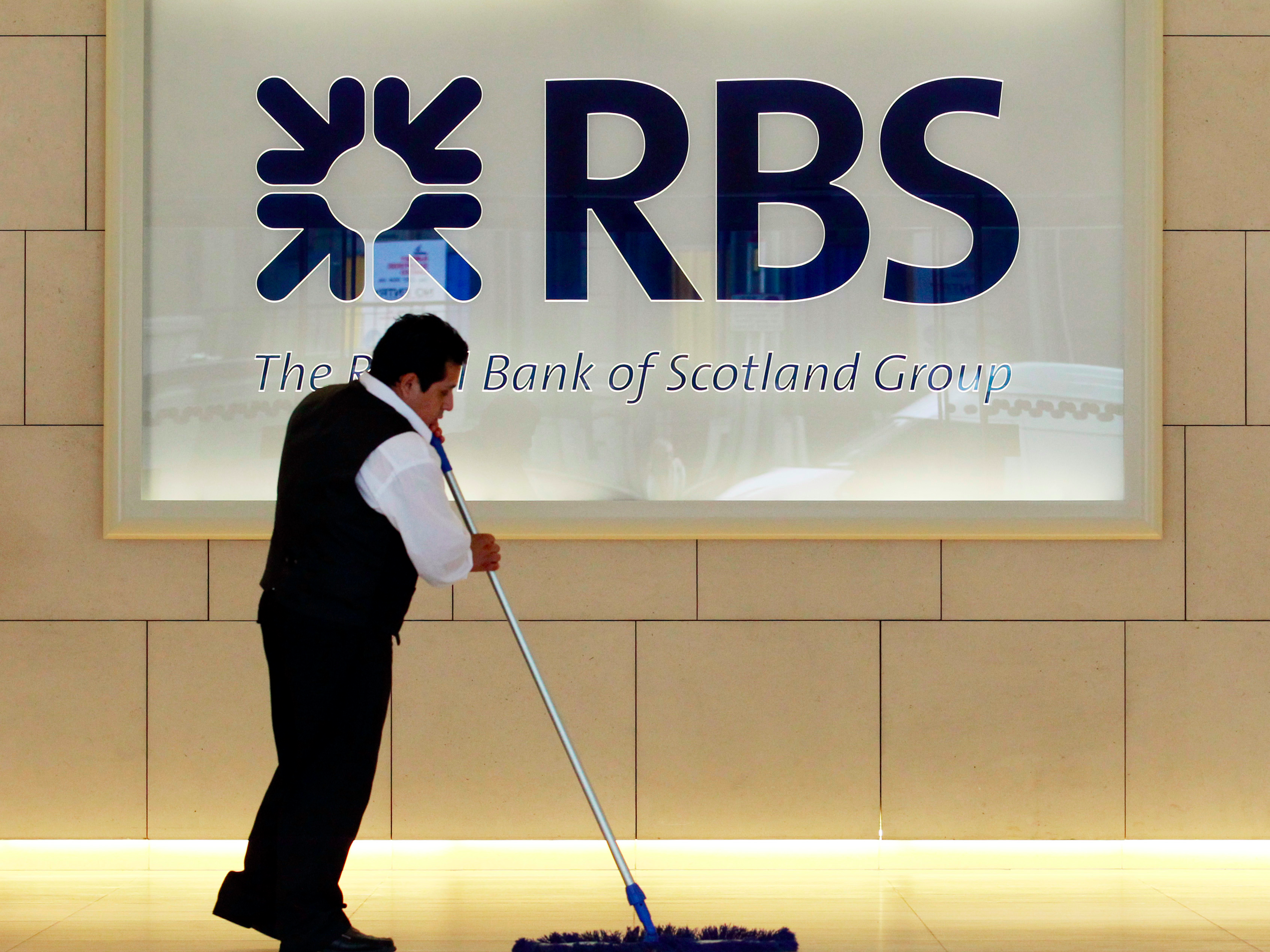The Royal Bank of Scotland is back in the spotlight.
A number of businesses claimed the lender pushed them into default for profit, and leaked documents to Buzzfeed and the BBC.
You can see more information and the leaked documents on the BBC site here.
BI contacted RBS about the allegations.
Jon Pain, chief conduct and regulatory affairs officer at RBS, sent us the following statement:
"RBS has been very clear that GRG's role was to protect the bank's position, where possible by working with distressed businesses to return them to financial health. In the aftermath of the financial crisis we did not always meet our own high standards and we let some of our SME customers down.
"We have already acknowledged that, in some areas, we could, and should, have done better for SME customers. Specifically, we could have managed the transition to GRG better and we could have better explained to customers any changes to the prices or fees we were charging. We also did not always handle customer complaints well. As a result, a number of our customers did not receive the level of service they should have done or, importantly, that they would receive now."
"It is important to remember the context of the time and the impact of the financial crisis. In 2008 there was an unprecedented increase in SMEs falling into financial distress and the numbers moving into GRG increased by over 400%.We should have coped better but, nevertheless, between 2011-2013, GRG advanced over £100 million of new lending to SMEs and successfully restructured thousands of SMEs. In doing so it safeguarded tens of thousands of jobs.
"These were incredibly difficult times for the bank and the wider economy. Between 2008 - 2013, RBS lost more than £2bn from lending to SME customers. The bank itself was in a precarious position and required extensive Government support.
"Since that time, RBS has become a different bank and significant structural and cultural changes have been put in place, including in how we deal with customers in financial distress. We continue to learn the lessons of the past and seek to do better for our customers. RBS is a fundamentally different institution today as a result.
"Despite a number of investigations that involved a detailed review of all the evidence, including reviewing millions of pages of documents, we have seen nothing to support the allegations that the bank artificially distressed otherwise viable SME businesses or deliberately caused them to fail. In regard to the wider allegations raised, we have found no evidence that the bank either inappropriately targeted such businesses to transfer them to GRG or drove them to insolvency. Nor did it buy their assets at a lower than market price.
"The FCA review of the treatment of SME customers in GRG remains ongoing. It would not be appropriate to comment further on that review until the FCA has published its conclusions."

